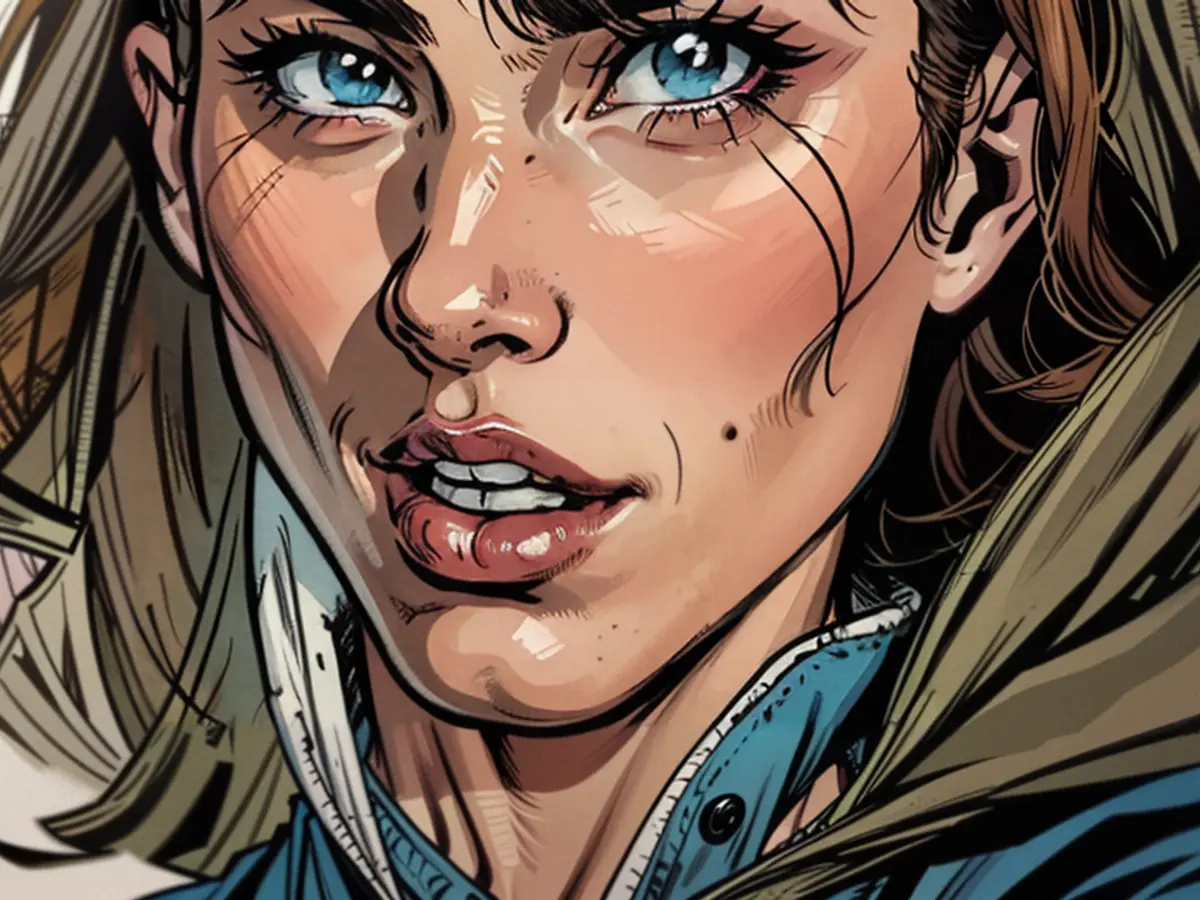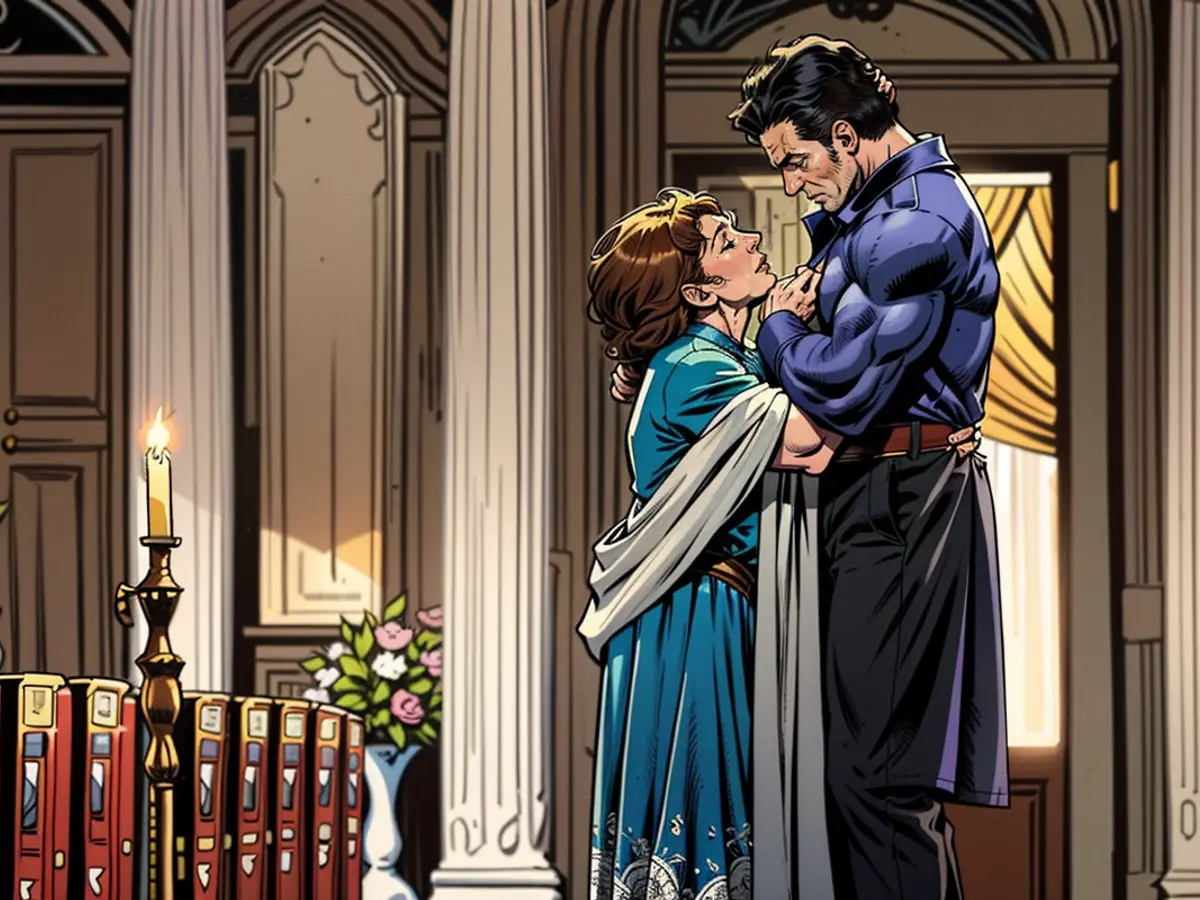Insight: Among the discussions about Polin in 'Bridgerton,' the series' relatable side-plots had the strongest emotional impact on me.
It ain't that Penelope Featherington and Colin Bridgerton, often referred to as Polin online, don't make a captivating pair. It's more like we've been anticipating their romance since the get-go. With a longer narrative than the initial two seasons' relationships, their story leaves space for other plotlines to unfold. This episode is packaged with side-quests, and although it may not be as titillating as Daphne's steamy affair with the Duke, a lot of it is more relatable.
The first familiar, nostalgic moment arrives in episode 5, when Eloise Bridgerton shares her thoughts about Penelope with Cressida Cowper, who has replaced Penelope as Eloise's confidante. As Eloise takes a breath after her rant, Cressida mentions she's faced a shock of her own. She confesses that she's being forced to marry an extremely old man against her will.
"Lord Greer?" Eloise exclaims. "Isn't he on death's door?"
"Afraid not," Cressida replies.
Eloise skillfully hits the brakes, sits down, and puts her hand on Cressida's knee. "I wouldn't have gone on had I known your predicament," she sighs.
It's a perfect exchange. With so much of popular culture pushing the extraordinary power of female friendships, Bridgerton's fairy-tale world is the last place one would expect a dash of realism. We know Eloise would rather talk about Penelope - or better, with Penelope - than Lord Greer, and we know Cressida knows this. They are making concessions, begrudgingly, because the only thing worse than complaining to your second choice is complaining to no one at all. Their shared dissatisfaction is a comfort for anyone who's felt the absence of a consistent group chat filled with people ready for weekend plans.
Complicated friendships seem to be the season's theme - fitting, given Colin and Penelope's transition from troubled friends to troubled spouses. Lady Violet, the Bridgerton matriarch, stumbles when faced with Francesca's uninspiring romance with Lord Stirling.
Violet's difficulties accepting a dull romance between her third daughter and the monosyllabic Lord Stirling reflect those of mothers everywhere who feel a sense of being needed. There's nothing more tedious than discovering one of your closest confidants is about to slip into marital bliss without seeking your advice, or even sharing their dating stories.
It's another dimension of the grief Eloise feels at Colin and Penelope's wedding breakfast. Crying, she tells her brother Benedict that she's just shedding "tears for losing another friend to marriage." It's never easy for those who are second-best to watch the newlyweds declare their love for each other.
Fortunately, Bridgerton's rules don't always apply in real life. Violet is correct in identifying the Francesca-Stirling relationship as the most uneventful in the series. And although Francesca makes a valid point that "not every bond needs to be dramatic and hard-fought," such dynamics make for boring TV. When Stirling's cousin shows up in the last episode, Francesca, who was previously devoid of chemistry, shares a charged look with her that's almost as electrifying as the notorious Polin bathroom scene. It's not a huge stretch to assume that Francesca's married life will be more exciting than her courtship.
In line with Season 3's somewhat asexual vibe, its most tender relationship isn't between Penelope and Colin, but Penelope and her mother. Lady Featherington is like Kris Jenner of Regency Mayfair: smarter than most of her daughters, and willing to go to any length to secure their futures - with or without their consent.
In Season 1, she's a laughing stock, juggling the twin pressures of maintaining her daughters' extravagant wardrobes and her husband's disinterest in finding them suitable matches. Over time, she reveals herself to be cunning, ruthless, and shallow, particularly towards Penelope, whom she often neglects in favor of her sisters.
While the show's attempt to portray Penelope's Lady Whistledown column as a feminist stronghold feels a bit contrived, Lady Featherington's belated appreciation of her daughter's talents is far more heartwarming. It's the kind of evolution many of us wish our parents could pull off. Similarly, many parents might envy Penelope's recognition that many of the qualities that made her successful as Lady Whistledown - her ambition, drive, and occasionally ruthless nature - were inherited from her mother.
"If we make it through this round," Lady Featherington tells her, "We must do better." Only a parent who's made countless mistakes but is determined to try again can offer the most authentic, and most moving, expression of love.

Read also:
In the context of Eloise's friendship with Cressida, their shared dissatisfaction in episode 5 highlights the relatable aspect of the series, as they both face challenging situations and are comforted by their understanding of one another's struggles, demonstrating the power of female friendships despite the extraordinary expectations in popular culture.
Moreover, the audience can relate to Eloise's feelings at Colin and Penelope's wedding, as witnessing friendships transition into marriages often brings up emotions of loss and Change in Opinions about these relationships.







